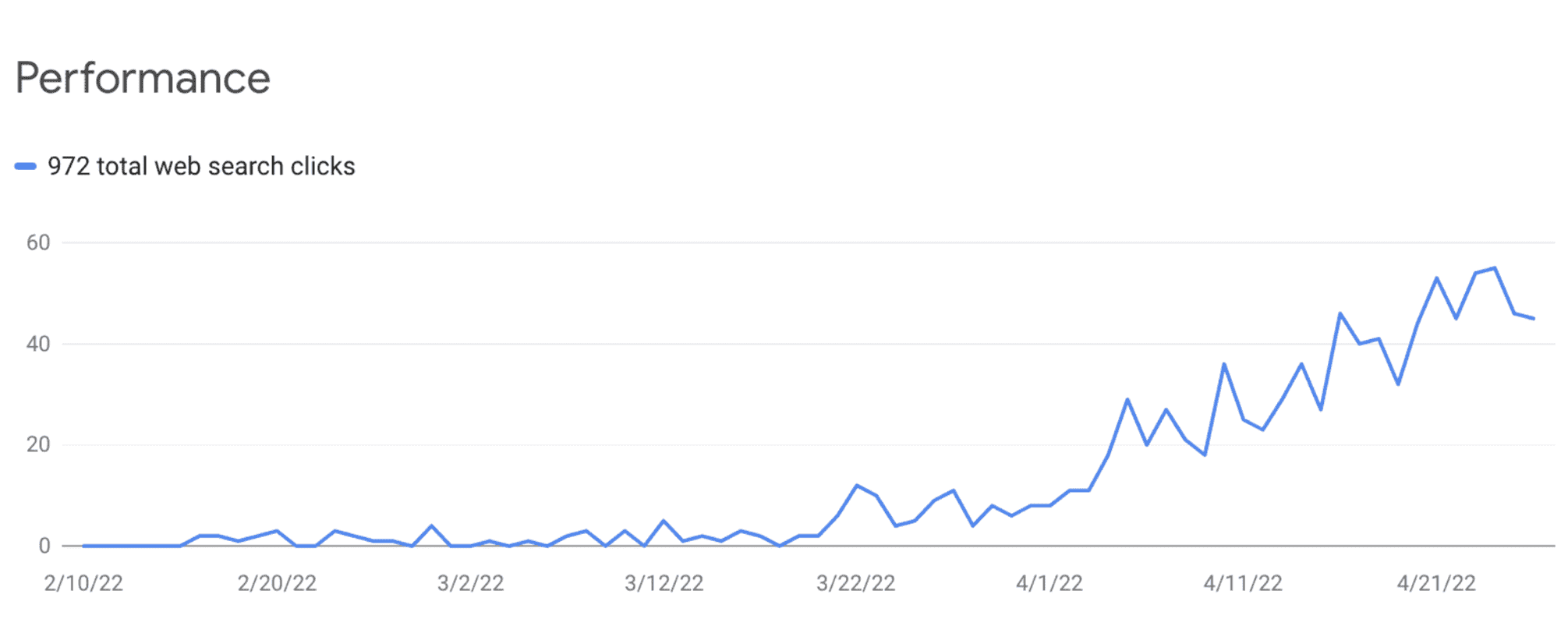In the world of blogging, one of the key goals for every blogger is to increase website traffic. Why is website traffic so important? Well, the more visitors you have coming to your site, the more opportunities there are for engagement, conversions, and ultimately, revenue generation.
We provides a comprehensive guide on how to become a blog traffic expert, emphasizing the importance of increasing website traffic for enhanced engagement, conversions, and revenue generation.
Many bloggers struggle with driving traffic to their sites. This article outlines different strategies to enhance website visibility, engage the audience, and ultimately increase site visitors.
Key Takeaways:
- Content is King: Consistently creating high-quality, valuable content attracts and retains an audience.
- Know Your Audience: Understanding your target audience’s demographics, interests, and pain points is key to creating resonating content.
- Leverage SEO: Incorporating effective SEO techniques improves your website’s visibility in search engine results, attracting organic traffic.
- Social Media Matters: Use social media platforms effectively to promote your blog, engage with your audience, and drive traffic to your website.
- Guest Blogging & Collaborations: Partnering with other bloggers and influencers can significantly expand your reach and drive traffic to your blog.
- Email Marketing Strategies: Building an email list and executing well-planned email campaigns can lead to increased website visitors and conversions.
- Track & Analyze Traffic: Regular analysis of website performance using analytics tools is critical for understanding how visitors interact with your site and making data-driven decisions to boost traffic.
Why website traffic is important for bloggers
Website traffic is crucial for bloggers for several reasons. Firstly, a higher number of visitors means more potential readers for your blog posts. As a blogger, you put time and effort into creating valuable content, and you want it to be seen by as many people as possible. More traffic means a greater reach for your message and ideas.
Secondly, website traffic is closely linked to the success of your monetization efforts. If you’re running ads on your blog or promoting products and services, having more visitors increases the likelihood of generating clicks, conversions, and sales. The more traffic you have, the more opportunities there are for earning revenue.
Benefits of increasing website visitors
Increasing website visitors offers several benefits for bloggers. Firstly, it allows you to build a larger audience and community around your blog. As more people visit and engage with your content, you can cultivate a loyal following who will return to your blog regularly and help spread the word about your work.
Another benefit of increasing website visitors is the potential for collaborations and partnerships. Brands and other bloggers are more likely to take notice of your blog and reach out for opportunities when you have a substantial amount of traffic. These collaborations can lead to sponsored posts, guest writing opportunities, and increased exposure for your blog.
Here’s a table summarizing the importance of increasing website traffic for bloggers:
| Key Benefit | Importance of Increasing Website Traffic |
|---|---|
| Greater Reach | More visitors mean more potential readers for your blog posts. |
| Monetization Potential | Increase the chances of generating clicks, conversions, and sales. |
| Cultivating Community | Build a larger audience and a loyal following. |
| Collaboration Opportunities | Attract brands and other bloggers for potential partnerships. |
In conclusion, increasing website traffic is a vital goal for bloggers. It allows for a wider reach, provides monetization opportunities, helps build a loyal community, and attracts collaborations. Implementing effective strategies to drive more visitors to your blog will ultimately contribute to your blog’s success and impact.
Understanding Your Target Audience
To become a blog traffic expert and increase the number of visitors to your website, it is important to have a deep understanding of your target audience. By understanding their demographics, interests, and pain points, you can create content that resonates with them and drives traffic to your site.
Conducting market research
Conducting thorough market research is the first step in understanding your target audience. This involves analyzing your competitors, industry trends, and the needs of your potential customers. By studying your competition, you can identify gaps in the market and find opportunities to attract new visitors to your website.
Analyzing audience demographics and interests
Once you have a general understanding of your target market, it is crucial to dig deeper and analyze the demographics and interests of your audience. This can be done through various tools and methods, such as audience analytics software and social media insights.
By analyzing audience demographics, you can identify key characteristics such as age, gender, location, and occupation. This information will help you tailor your content and marketing strategies to effectively reach and engage your target audience.
In addition to demographics, analyzing audience interests is equally important. Understanding what topics, trends, and types of content your audience is interested in will allow you to create relevant and compelling blog posts that attract more visitors to your website.
Remember, becoming a blog traffic expert requires ongoing research and analysis. By continuously monitoring and adapting to the changing needs and interests of your target audience, you can position your website as a valuable resource and drive consistent traffic over time.
Content Marketing Strategies
To become a blog traffic expert and increase website visitors, it is crucial to implement effective content marketing strategies. Here are two key strategies that can help you achieve this goal:
Creating high-quality and engaging content
One of the most important aspects of driving traffic to your blog is to create high-quality and engaging content. By providing valuable information, insights, and solutions, you can attract and retain a loyal audience. Here are some tips to create compelling content:
- Conduct thorough research to understand your target audience and their interests.
- Identify popular topics and trends within your industry to ensure your content remains relevant.
- Write in a clear and concise manner, making it easy for readers to understand and engage with your content.
- Incorporate storytelling techniques to make your content relatable and engaging.
- Use visual elements such as images, videos, and infographics to enhance the readability and appeal of your content.
- Encourage reader interaction by including calls to action, comment sections, and social sharing buttons.
Remember, the quality of your content plays a significant role in attracting and retaining website visitors. By consistently delivering valuable and engaging content, you can establish yourself as a trusted source within your niche and drive more traffic to your blog.
Incorporating SEO techniques for improved visibility
To increase website visitors, it is essential to optimize your blog content for search engines. By incorporating SEO techniques, you can improve your website’s visibility in search engine results and attract organic traffic. Here are some SEO strategies to consider:
- Conduct keyword research to identify relevant keywords and phrases that your target audience is searching for.
- Incorporate these keywords naturally into your blog titles, headings, and throughout your content.
- Optimize your meta tags, including meta descriptions and alt tags for images, to provide search engines with valuable information about your content.
- Ensure your website has a mobile-friendly design and fast loading speed, as these are important factors in search engine rankings.
- Build high-quality backlinks from reputable websites within your industry to boost your blog’s authority and visibility.
By implementing effective SEO techniques, you can improve your blog’s search engine rankings and attract more organic traffic. This, in turn, will help you become a blog traffic expert and increase website visitors.
In conclusion, becoming a blog traffic expert requires implementing effective content marketing strategies. By creating high-quality and engaging content, as well as incorporating SEO techniques, you can drive more traffic to your website and establish yourself as an authority within your niche.
Social Media Marketing
In today’s digital age, social media has become an essential tool for businesses to promote their brand and connect with their target audience. When it comes to driving traffic to your website, leveraging social media platforms can be a game-changer. By implementing effective social media marketing strategies, you can increase website visitors and boost engagement with your content.
Leveraging social media platforms to promote your blog
One of the key ways to become a blog traffic expert is by utilizing social media platforms to promote your blog content. Here are some strategies to consider:
1. Share your blog posts: After publishing a new blog post, share it across your social media channels. Craft compelling captions that entice your audience to click on the link and read the full article. Use attention-grabbing headlines and include relevant hashtags to increase visibility.
2. Create engaging visuals: Visual content is highly shareable and helps capture your audience’s attention. Create eye-catching graphics, infographics, or videos to accompany your blog posts and share them on social media. Visuals not only make your posts more appealing but also increase the chances of them being shared by your followers.
3. Engage with your audience: Social media is all about building relationships and engaging with your audience. Respond to comments, messages, and mentions on your social media posts. Encourage discussions, ask questions, and seek feedback from your followers to foster a sense of community around your blog.
4. Cross-promote with influencers: Collaborating with influencers in your niche can significantly boost your blog traffic. Identify influencers who align with your brand values and have a substantial following. Collaborate on content creation or ask them to promote your blog posts to their audience. This can expose your content to a wider audience and attract new visitors to your website.
5. Utilize social media advertising: Paid social media advertising can be an effective way to drive targeted traffic to your blog. Platforms like Facebook, Instagram, and Twitter offer advertising options that allow you to reach specific demographics and interests. Create engaging ad campaigns that entice users to click through to your blog.
6. Optimize your profiles for search: Improve your visibility on social media by optimizing your profiles for search engines. Include relevant keywords in your bio, use a consistent username across platforms, and provide a clear and concise description of your blog. This will make it easier for users to find and follow your social media profiles.
By implementing these strategies and being consistent with your social media efforts, you can become a blog traffic expert and drive a steady stream of visitors to your website. Remember to track and analyze your social media metrics to identify what strategies are working best for you and make necessary adjustments for optimal results.
Guest Blogging and Collaborations
One effective strategy for increasing website traffic is through guest blogging and collaborations with other bloggers. This allows you to tap into new audiences and leverage the existing reach of established bloggers. Here are the benefits and strategies for successful guest blogging:
Benefits of guest blogging and collaborating with other bloggers
- Increased exposure: By guest blogging on other websites, you can reach a wider audience who may not be familiar with your brand. This exposure can lead to an increase in website visitors and potential customers.
- Building relationships: Collaborating with other bloggers allows you to build relationships within your industry. This can lead to partnerships, guest posting opportunities, and referrals, further expanding your reach.
- Enhanced credibility: Publishing high-quality content on reputable blogs helps establish you as an expert in your field. This credibility can boost your reputation and attract more readers to your website.
Finding relevant guest blogging opportunities
To maximize the benefits of guest blogging, it’s important to find relevant opportunities that align with your niche and target audience. Here are strategies for finding the right guest blogging opportunities:
- Research and identify blogs: Look for blogs that have a strong readership in your industry. Consider their domain authority, social media following, and engagement levels to ensure that they have an active and engaged audience.
- Outreach and pitch: Craft personalized pitches tailored to each blog you want to contribute to. Highlight how your content will benefit their audience and showcase your expertise and knowledge in the industry.
- Collaborate with bloggers: Connect with other bloggers in your niche through networking events, social media platforms, or blogger communities. Building relationships and collaborating with them can lead to guest posting opportunities and cross-promotion.
By leveraging guest blogging and collaborations with other bloggers, you can strategically increase your website traffic and establish yourself as a blog traffic expert. Remember to choose relevant opportunities, provide valuable content, and nurture relationships with other bloggers for long-term success.
Email Marketing and Newsletter Campaigns
Building an email list and capturing leads
One of the most effective strategies for increasing website visitors is through email marketing and newsletter campaigns. Building an email list allows you to capture leads and nurture them into loyal followers of your blog or website.
To build an email list, it is important to offer valuable content or incentives in exchange for visitors’ email addresses. This can include offering exclusive access to resources, discounts, or freebies. Implementing lead capture forms or pop-ups on your website can help attract visitors to subscribe to your email list.
Driving traffic through email marketing efforts
Once you have a list of subscribers, you can leverage email marketing to drive traffic to your website. Regularly sending out newsletters and email campaigns with engaging and enticing content can encourage subscribers to visit your site and explore more of your blog posts or offerings.
Effective email marketing campaigns include personalized and targeted content that resonate with your audience. Segmenting your email list based on demographics, interests, or past behaviors allows you to send relevant and tailored content to specific groups of subscribers. This can help increase open rates, click-through rates, and ultimately, drive more traffic to your website.
It is also crucial to optimize your email campaigns for mobile devices, as a significant percentage of email opens occur on smartphones and tablets. Having a responsive email design ensures that your content is easily readable and clickable on any device.
In summary, utilizing email marketing and newsletter campaigns is a powerful strategy for becoming a blog traffic expert. Building an email list and capturing leads allows you to nurture and engage with your audience, while driving traffic through well-executed email campaigns can lead to increased website visitors and conversions.
Search Engine Optimization (SEO)
If you want to increase traffic to your blog and attract more visitors to your website, mastering search engine optimization (SEO) is essential. SEO involves optimizing your website and its content to rank higher in search engine results pages (SERPs). By implementing effective SEO strategies, you can improve your website’s visibility and attract more organic traffic.
Optimizing your website for search engines
To become a blog traffic expert, it’s crucial to optimize your website for search engines. Here are some strategies to help you increase your website’s visibility and attract more visitors:
- Keyword Research: Start by conducting thorough keyword research to identify relevant and high-traffic keywords that are related to your blog topics. Use keyword research tools like Google Keyword Planner or SEMrush to find popular keywords that have low competition. Incorporate these keywords naturally into your blog posts and website content.
- On-Page Optimization: Optimize your website’s on-page elements, such as title tags, meta descriptions, and header tags, by including your target keywords. Ensure that your content is well-structured and easy to navigate. Use descriptive and compelling meta descriptions to entice users to click on your website in search results.
- High-Quality Content: Create high-quality and engaging content that provides value to your audience. Make sure your blog posts are well-researched, informative, and original. Use a mix of text, images, and videos to make your content more appealing.
- Link Building: Build high-quality backlinks to your website to improve its authority and reputation. Reach out to relevant websites and bloggers in your niche and ask for backlinks. You can also create shareable content that others will naturally link to.
- Website Speed and Mobile Optimization: Ensure that your website loads quickly and is optimized for mobile devices. Users expect fast-loading websites, and search engines prioritize websites with good performance. Use tools like Google PageSpeed Insights to analyze and improve your website’s speed.
- Social Media Promotion: Leverage social media platforms to promote your blog posts and drive traffic to your website. Share your content on platforms like Facebook, Twitter, and Instagram, and engage with your audience. Encourage social sharing by adding social sharing buttons to your blog posts.
- Guest Blogging: Guest blogging is a great way to expand your reach and attract new visitors to your website. Contribute high-quality guest posts to reputable blogs in your niche and include a link back to your website in the author bio. This can help drive targeted traffic and improve your website’s visibility.
By implementing these SEO strategies and consistently creating high-quality content, you can become a blog traffic expert and significantly increase website visitors. Remember to track and analyze your website’s traffic using tools like Google Analytics to understand what strategies are most effective for your blog.
Analyzing and Tracking Website Traffic
To become a blog traffic expert, it’s crucial to analyze and track your website’s performance. This allows you to understand how visitors interact with your site, identify areas for improvement, and make data-driven decisions to increase traffic. Here are some strategies you can implement:
Using analytics tools to monitor website performance
Analytics tools play a vital role in understanding your website’s traffic patterns. They provide valuable insights into metrics like pageviews, unique pageviews, bounce rate, and traffic sources. By using tools like Google Analytics or HubSpot’s traffic analytics, you can accurately track and measure your website’s performance. These tools also offer features like session tracking, identifying new and returning visitors, and analyzing traffic sources.
Making data-driven decisions to improve traffic
Once you have gathered data from analytics tools, it’s essential to make informed decisions to improve traffic. Here are some strategies to consider:
- Identify pages with high bounce rates: High bounce rates indicate that visitors are leaving your site after viewing only one page. Analyze these pages to understand why visitors are not engaging further. Optimize the content, improve page loading times, or add relevant internal links to encourage users to explore more.
- Focus on SEO optimization: Pay attention to on-page SEO elements like page titles, meta descriptions, and image alt-text. Optimize your content by incorporating relevant keywords and providing valuable information to potential visitors. Utilize tools like SEMrush or Moz to identify SEO opportunities and improve your website’s visibility in search engine results.
- Enhance user experience: Analyze user behavior on your site to identify pain points or areas of confusion. Make sure your website is mobile-friendly, easy to navigate, and provides a seamless user experience. Utilize heatmaps or user recording tools to gather insights on how visitors interact with your site and make necessary improvements.
- Utilize social media and email marketing: Leverage your existing audience by promoting your blog posts and content through social media channels and email newsletters. Encourage readers to share your content with their network, increasing your reach and driving more traffic to your site. Stay active on social media platforms like Facebook, Instagram, and YouTube to connect with your audience and attract new visitors.
By implementing these strategies and regularly analyzing your website’s performance, you can become a blog traffic expert and effectively increase visitors to your site. Remember, data is your most valuable tool in understanding your audience and optimizing your content for maximum engagement.
Conclusion: Becoming a Blog Traffic Expert
Increasing website traffic is crucial for the success of any blog. By implementing the strategies mentioned above, you can become a blog traffic expert and see a significant boost in your website visitors. Here are some final tips for ongoing traffic growth and success:
- Consistently produce valuable content: Remember that content is king. Continuously create high-quality, valuable, and shareable content that aligns with the interests and needs of your target audience. This will keep them coming back for more and increase the chances of your content going viral.
- Optimize for search engines: Utilize search engine optimization (SEO) techniques to improve your website’s visibility and organic search rankings. Conduct keyword research, optimize your website’s meta tags, headers, and content, and focus on building quality backlinks to enhance your SEO efforts.
- Engage with your audience: Actively interact with your audience through comments, social media, and email marketing. Encouraging discussions and responding to feedback will foster a sense of community and loyalty among your readers, leading to increased traffic through word-of-mouth.
- Utilize social media platforms: Leverage the power of social media to promote your blog and attract new visitors. Share your content on platforms like Facebook, Twitter, Instagram, and LinkedIn, and engage with your audience through posts, stories, live videos, and other interactive features.
- Collaborate with influencers and guest bloggers: Partnering with influencers in your niche and welcoming guest bloggers can significantly expand your reach and drive more traffic to your blog. Collaborate with influential individuals who have a large following and ask them to share your content with their audience.
- Utilize email marketing: Build an email list and regularly send newsletters to your subscribers. Offer valuable content, exclusive promotions, and personalized recommendations to keep your subscribers engaged and encourage them to visit your blog regularly.
Remember, becoming a blog traffic expert takes time and effort. Continuously monitor your website analytics, experiment with different strategies, and adapt your approach based on the results you see. With persistence and dedication, you can become a master at driving traffic to your blog and achieve your goals.





